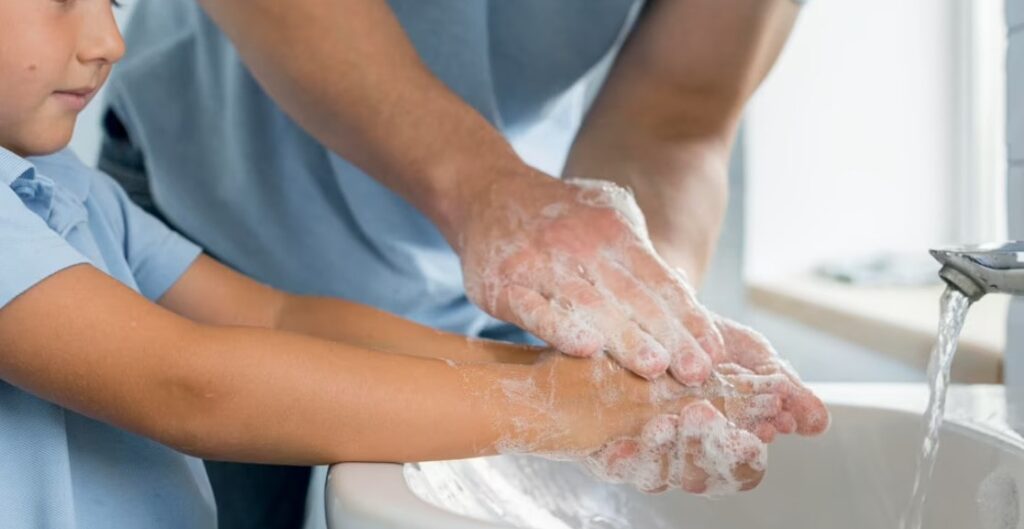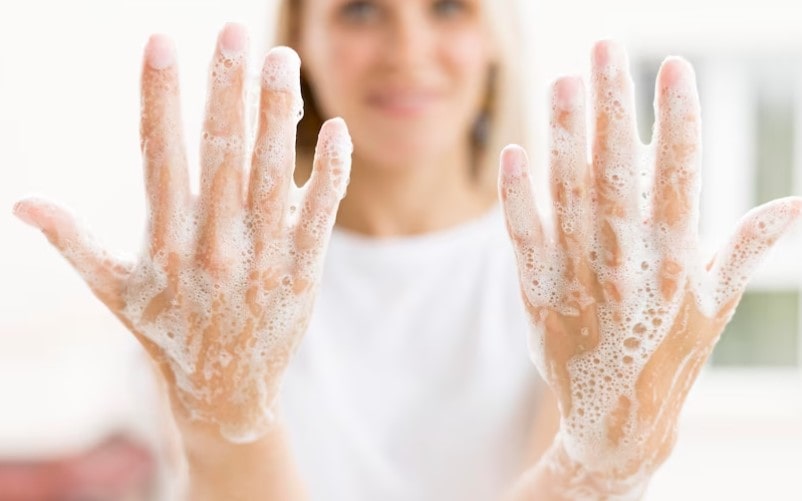As the world continues to battle the COVID-19 pandemic, handwashing has become more important than ever. In fact, regular handwashing with soap and water is one of the most effective ways to prevent the spread of infectious diseases. Handwashing is a simple and effective way to protect oneself and others from illnesses and diseases. It is the process of cleaning one’s hands with water and soap or hand sanitizers to remove dirt, germs, and other harmful substances.
Handwashing is a basic hygienic practice that can prevent the spread of infections, particularly during pandemics. In this article, we will discuss the reasons why handwashing is the most powerful tool in your health arsenal and the benefits, challenges, and techniques of handwashing.
In this article, we will explore the power of handwashing and why it is so important.
The Science of Handwashing

Handwashing is not just a simple act of cleaning your hands; it is a scientifically proven method of preventing the spread of infectious diseases. When you wash your hands with soap and water, you create a physical barrier that removes dirt, grime, and harmful microorganisms from your skin. Soap molecules work by breaking down the lipid membrane that surrounds viruses and bacteria, making them inactive and easier to wash away.
Studies have shown that handwashing with soap and water can reduce the risk of respiratory infections by up to 16%. It can also reduce the risk of diarrheal diseases by up to 23%. Regular handwashing has been shown to be effective in reducing the transmission of diseases such as the flu, norovirus, and hepatitis A.
The Importance of Handwashing in Healthcare

Handwashing is especially important in healthcare settings, where patients may have weakened immune systems and are more susceptible to infections. Healthcare workers are required to wash their hands regularly to prevent the spread of infections from one patient to another.
According to the Centers for Disease Control and Prevention (CDC), healthcare workers should wash their hands before and after caring for each patient, after touching any potentially infectious material, and after removing gloves. This is known as hand hygiene, and it is an essential part of infection prevention and control in healthcare settings.
How to Wash Your Hands Properly

Proper handwashing technique is essential to ensure that your hands are effectively cleaned. Here are the steps to follow:
- Wet your hands with clean, running water (warm or cold), and apply soap.
- Lather your hands by rubbing them together with the soap. Be sure to lather the backs of your hands, between your fingers, and under your nails.
- Scrub your hands for at least 20 seconds. Need a timer? Hum the “Happy Birthday” song from beginning to end twice.
- Rinse your hands well under clean, running water.
- Dry your hands using a clean towel or air dry them.

It is important to note that hand sanitizer is not a substitute for handwashing with soap and water. Hand sanitizer should be used when soap and water are not available, but it is not as effective at removing dirt, grime, and harmful microorganisms from your skin.
Incorporating Handwashing into Your Daily Routine

Handwashing should be incorporated into your daily routine to help prevent the spread of infectious diseases. Here are some tips to help you make handwashing a habit:
- Wash your hands before and after preparing food, before eating, and after using the bathroom.
- Wash your hands after blowing your nose, coughing, or sneezing.
- Wash your hands after touching an animal, animal feed, or animal waste.
- Wash your hands after handling garbage.
- Wash your hands after touching anything that may be contaminated with germs, such as a dirty dish or a used tissue.
Conclusion
In conclusion, handwashing is a simple and effective way to prevent the spread of infectious diseases. By washing your hands regularly with soap and water, you can help protect yourself and those around you from getting sick. Remember to wash your hands frequently and follow proper handwashing techniques to keep yourself and your community healthy.
So, next time you have the chance to wash your hands, take advantage of it and remember the power of handwashing. It could make all the difference in preventing the spread of infectious diseases.


